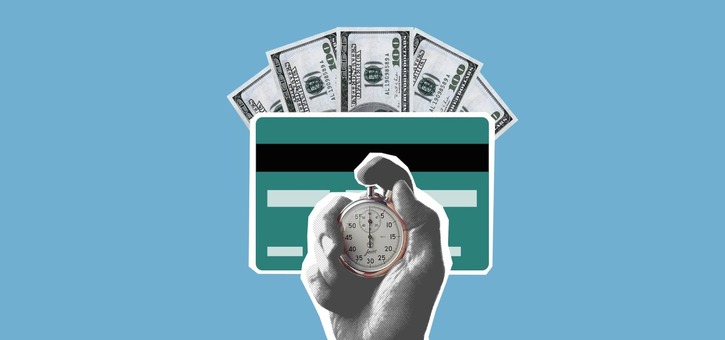Can Americans buy property in Canada? A complete guide for US buyers

This guide to buying property in Canada explains what Americans can purchase and how they can navigate the rules. The process comes with unique conditions for a foreigner, yet the appeal of Canada’s lifestyle and proximity keeps demand strong. For many, the chance to enjoy secure ownership in a stable market makes the effort worthwhile.
This article is brought to you by Taxes for Expats, a top-rated team helping Americans abroad meet US filing requirements. Knowing the taxes, financing, and compliance you face when you buy a house in Canada can help you plan cash flow and optimize foreign tax credits on your US return. If the rules for a non-resident buyer feel confusing, our team will guide you every step of the way.
Can Americans lawfully purchase Canadian properties
Americans can legally buy property in Canada, but a major federal restriction currently limits access to most urban homes. Passed in 2022 and effective January 1, 2023, the Prohibition on the Purchase of Residential Property by Non-Canadians Act was designed to cool Canada’s overheated housing market. With that noted, let us dive deeper and uncover more about the prohibition act and any extra-provincial rules that may apply in the course of acquiring properties in Canada.
-
Snapshot of foreign-ownership rules
Canada’s federal law blocks most non-Canadians from buying residential property located inside census metropolitan areas and census agglomerations through December 31, 2026. “Residential property” generally means buildings with three or fewer dwelling units, while properties outside CMA or CA boundaries fall outside the rule. Commercial real estate is not targeted by this ban. -
How federal and local rules interact
The federal prohibition sets a nationwide baseline, while provinces and municipalities add their own taxes for foreign buyers where purchases are otherwise allowed. These include surcharges such as Ontario’s Non-Resident Speculation Tax, British Columbia’s Additional Property Transfer Tax, and other local levies that can significantly raise closing costs. -
What the federal prohibition covers
The Act bars non-Canadians from directly or indirectly buying residential property within covered urban areas during the ban period. However, purchasing for development – for example, building new housing – is allowed. The 2023 regulatory amendments introduced a development exception and set the control threshold at 10%, and in 2024, the government extended the prohibition to January 1, 2027. -
Who is affected and key carve-outs
The law applies to individuals who are not Canadian citizens or permanent residents and to entities controlled by non-Canadians, with control defined at 10 percent of equity or voting rights. A US citizen holding a valid work permit with at least 183 days remaining may purchase one residential property, and certain international students may qualify under strict filing, presence, and price caps. Many recreational areas outside CMA or CA, and multi-unit buildings with four or more dwellings, are not within the prohibition.
Property options for Americans in Canada
Canada's real estate rules differ by the type of property and its location, which is why we are showing you what an American can purchase currently in Canada and a preview of the tax and rule twists that follow.
Residential homes in urban markets
In most cities and towns within CMAs or CAs, non-Canadians are generally barred from purchasing detached houses, townhomes, and triplexes until January 1, 2027, unless an exception applies. If the home is in Toronto and you qualify under an exception, budget for Ontario’s 25% NRST and Toronto’s additional 10% municipal foreign-buyer tax. British Columbia also levies a 20% Additional Property Transfer Tax in specified regions.
Condos and vacation homes that fit
On many occasions, buying property in Canada as an American often means you have to focus on condos or cottages, where location determines eligibility. So it is advisable to:
- expect vacancy filings in major cities such as Vancouver at 3% of assessed value and Toronto at 3% for qualifying empty units, and
- in B.C. Speculation and Vacancy Tax areas know that as a foreigner, you may likely face 2% through 2025 and 3% from 2026.
Land and investment properties to scale
Larger multifamily buildings with 4 or more units are not treated as restricted residential property under the federal rules. You can still buy property in Canada by targeting rural parcels outside CMAs or CAs and income-producing assets that meet these definitions.
Vacant residential land for genuine development can also qualify under a specific exception. Farmland has its own caps, such as Saskatchewan’s 10 acres and Alberta’s 20 acres of controlled land for non-residents.
NOTE! Commercial real estate, such as retail, office, and industrial, remains available to non-residents under provincial transfer-tax regimes. In many markets, purpose-built rental buildings with 4 or more units are also open categories under the federal definition. Mixed-use properties can work when the residential portion meets the 4-unit threshold.

Property costs across major Canadian areas
The real estate map in Canada is a study in contrasts, from premium Pacific metros to value-rich prairie cities. These figures reflect property in Canada, and will evolve with local market shifts, which is why we analyzed the five priciest Canadian markets on Numbeo right now in a snapshot, so you can scan fast.
| Region & city | City centre (C$/sq ft) | Outside centre (C$/sq ft) |
|---|---|---|
| British Columbia, Vancouver | 1,257.87 | 910.90 |
| Québec, Quebec City | 1,252.24 | 454.59 |
| Ontario, Toronto | 1,121.62 | 932.49 |
| British Columbia, Victoria | 857.99 | 602.79 |
| Québec, Montreal | 857.20 | 605.15 |
Anyone comparing regions will notice how sharply coastal and prairie pricing diverge. Many readers ask whether Americans can acquire properties in Canada, especially in the high-demand metros, or shift inland, where budgets go further, so if your goal is a home, check the outside centre column first to see how far your dollars stretch.
Documents needed to buy a home in Canada
To purchase property in Canada, you are often required to provide straightforward real estate identification and tax records. Use this checklist to move from offer to keys on your home with fewer surprises.
-
Government photo ID
Bring two valid government IDs for your signing appointment. Realtors must verify identity under FINTRAC rules, and lawyers or notaries record your particulars. -
Proof of funds
Provide recent bank statements and wire details that match your down payment. Lawyers must capture the source of funds information for every financial transaction. -
Mortgage pre-approval and income proof
Show a lender pre-approval or commitment plus income proof like recent pay stubs and two years of W-2s or tax returns. Canadian lenders commonly ask for this package when assessing non-resident borrowers. -
Agreement of Purchase and Sale and deposit receipt
Have the signed agreement and the trust receipt for the deposit. Closing documents are exchanged by counsel under a Document Registration Agreement. -
CRA Individual Tax Number if you will file in Canada
Apply for an ITN if you expect rental income filings or other non-resident returns. Use Form T1261 with the required ID attachments. -
Residency or work-permit evidence if claiming an exception
If you are American and buying inside a CMA or CA under an allowed exception, include your work permit showing at least 183 days of validity, and confirm you have not purchased more than one property. Americans can own land in Canada where the federal urban purchase ban does not apply, so keep location or zoning proofs on file. -
Title and registration package
Your lawyer prepares the transfer, title searches, and Statement of Adjustments. These confirm that you are the registered owner of the property in Canada.
Clear steps to purchase a property in Canada
Follow this concise path from research to closing. It serves as a guide to any American, from picking a location through financing, representation, offer, and a smooth handover.
Step 1: Choosing a location
Shortlist areas that fit your budget, travel plans, and lifestyle, then check local bylaws that affect use and insurance. Rules that shape how foreigners buy property in Canada vary by jurisdiction and timing, so confirm them early.
Step 2: Financing and proof of funds
Request a preapproval and gather ID, income proof, bank statements, and insurance details that lenders typically ask for. Non-resident programs often expect larger down payments, with many lenders looking for about 35 percent in practice. Secure preapproval before you buy property in Canada to strengthen your offer.
Step 3: Hiring a Canadian real estate agent and lawyer
Work with a local real estate professional to source listings, compare recent sales, and negotiate terms. Retain a Canadian lawyer to verify identity, review the agreement, and start title due diligence under client-ID and source-of-funds rules.
Step 4: Making an offer and providing the deposit
Your agent prepares the Agreement of Purchase and Sale with conditions suited to your situation. Once accepted, the deposit is commonly due within 24 to 48 hours and is held in trust under the contract.
Step 5: Fulfilling conditions and firming the deal
Complete inspection, appraisal, and financing steps, then remove conditions when satisfied. Your lawyer completes title searches and obtains an insurance binder so the file is ready to close.
Step 6: Closing the deal and taking possession
Your lawyer receives funds, registers the transfer and any mortgage, and releases keys on the closing date. Registration confirms ownership, and most transactions close about 30 to 60 days after acceptance.
Financing paths for US buyers in Canada
Financing a home from abroad is workable with the right paperwork and lender fit. Below are eligibility norms, down payment benchmarks, and currency moves that keep costs predictable.
RBC, TD, and Scotiabank offer programs that consider American buyers who can document income, assets, and either a US credit report or a bank reference. In practice, non-resident applicants are often underwritten at about 35% down when Canadian credit or employment is limited. Where the borrower is a permanent resident or a foreign worker with Canadian income, TD shows options from 20% uninsured to insured tiers starting at 5% on homes under $1.5 million.
When buying property in Canada, plan lender minimums early and keep funds fully sourced before the approval window. Exchange rates are published daily by the Bank of Canada, so a small move can change your real estate outlay materially. Some borrowers hedge with a currency forward to lock a rate for closing, which helps stabilize the cost of ownership if markets swing.
Best Canadian cities for property buying
These picks balance lifestyle, culture, and real estate fundamentals. Use this snapshot to narrow where buying property in Canada feels right for you.
Montréal
Creative energy and a European vibe define this UNESCO City of Design; Montréal (Ville) recorded 1,762,949 residents in 2021. A large international community and bilingual everyday life make it welcoming, with festivals, cafés, and riverfront cycling paths adding everyday ease.
Ottawa
The national capital layers museums, embassies, and the UNESCO-listed Rideau Canal; city population reached 1,017,449 in 2021. High English-French bilingualism and miles of urban pathways support community life and long-term ownership for families.
Halifax
Atlantic Canada’s gateway passed the half-million mark in 2024, mixing maritime charm with major universities. Harbour walks, live music, and ocean access make it an easygoing base for newcomers who value coastal culture.
Vancouver
Oceanfront living meets mountains and a mild oceanic climate, with the city ranked top-10 globally for liveability in 2025; population reached 662,248 in 2021. An American plugs in fast via daily flights and West Coast rhythms, plus year-round outdoor culture anchored by Stanley Park and the seawall.
Toronto
Canada’s cultural capital blends big-league arts, pro sports, and walkable neighborhoods; the city counted 2,794,356 residents in 2021. A global hub where nearly half of the residents are immigrants, US expats settle easily amid first-rate transit, festivals, and diverse food scenes.

Taxes and fees Americans should know
Costs vary widely across the Canadian real estate market. Before you purchase, outline the main closing charges, extra foreign-buyer levies, and recurring taxes you should budget for.
Land transfer taxes
Most provinces charge a land or property transfer tax at closing, and some cities add their own layer. Rates are progressive and can be significant in large urban areas.
- Ontario LTT: 0.5% up to 55,000; 1% from 55,000 to 250,000; 1.5% from 250,000 to 400,000; 2% from 400,000 to 2,000,000; 2.5% over 2,000,000.
- Toronto MLTT: a separate municipal land transfer tax is charged in addition to Ontario’s LTT, with higher brackets for luxury purchases.
- British Columbia PTT: 1% on the first 200,000; 2% from 200,000 to 2,000,000; 3% over 2,000,000, plus an extra 2% on the portion of residential value over 3,000,000.
Non-resident speculation tax
Ontario levies a 25% Non-Resident Speculation Tax on residential purchases province-wide. Toronto adds a 10% Municipal Non-Resident Speculation Tax on certain residential deals effective January 1, 2025.
British Columbia charges a 20% Additional Property Transfer Tax in specified regions, and Nova Scotia applies a 10% Provincial Non-Resident Deed Transfer Tax.
Ongoing property taxes
If you are buying property in Canada, plan for annual filings and potential vacancy charges in certain areas. These costs attach to ownership, not just the purchase year.
- Municipal property tax: Toronto’s 2025 residential rate totals 0.754087% of assessed value.
- Vancouver Empty Homes Tax: 3% of the prior year’s assessed value if the home is vacant and no exemption applies, with a yearly declaration.
- Toronto Vacant Home Tax: 3% starting with the 2024 taxation year, with an annual occupancy declaration.
- BC Speculation and Vacancy Tax: 2% for foreign owners for 2019 to 2025, rising to 3% beginning in 2026.
Cross-border taxing essentials to plan for
Taxes are hit in two countries, and filing calendars differ. An American buyer should map out the paperwork before the first rent check.
- Tax in both countries: Canada taxes Canadian-source rent and may apply federal and local vacancy taxes; the US taxes worldwide income and gains.
- Reporting by US citizens: FBAR for foreign accounts over 10,000 dollars, FATCA Form 8938 above set thresholds, and Form 1116 to claim any foreign tax credit.
- Treaty relief: The Canada-US tax treaty coordinates taxing rights, while the US foreign tax credit helps reduce double taxation.
Also read. Taxes in Canada for US expats
Canada home buying pros and risks for US buyers
Any American looking north will find both exciting opportunities and real challenges. Here, you’ll see the rewards of buying property in Canada alongside the risks that deserve attention.
Why it can be a smart move
Choosing real estate across the border means easy access for travel and closer ties with friends and family back home. Canada’s reputation for stability gives confidence that values are less likely to swing wildly. From mountain resorts to coastal towns, the lifestyle benefits are hard to ignore and make ownership feel more rewarding.
Where it can work against you
Rules on foreign ownership remain strict in many cities until 2027, which limits access for those without exemptions. Even when you qualify, added costs and financial uncertainties can complicate your plans.
- Currency shifts: Exchange rate moves can change what your purchase really costs and affect long-term returns.
- Regulatory updates: Government policies on non-resident buyers can shift, narrowing what properties are available.
- Tax pressures: Extra levies for foreign buyers and annual property surcharges can make holding a home more expensive.
Get expert tax guidance before you buy in Canada
Before stepping into real estate north of the border, it pays to understand how Canadian rules interact with US tax obligations. Extra levies on foreign ownership, annual vacancy filings, and withholding on rental income can all affect your bottom line. Even selling later comes with clearance certificates and cross-border reporting that many overlook.
Our team ensures you meet every requirement smoothly while enjoying the lifestyle that drew you to Canada in the first place. At Taxes for Expats, our specialists are here to guide you through compliance so you can focus on living well in your new home.

FAQ
Most visitors, including US citizens, can stay up to six months per entry at the officer’s discretion, and owning a home does not grant immigration status.
It varies by city and property type, so compare local market medians rather than national figures.
Based on CREA’s August 2025 national average of CAD 664,078 and a recent CAD–USD rate, the price is roughly 480,000 USD.



